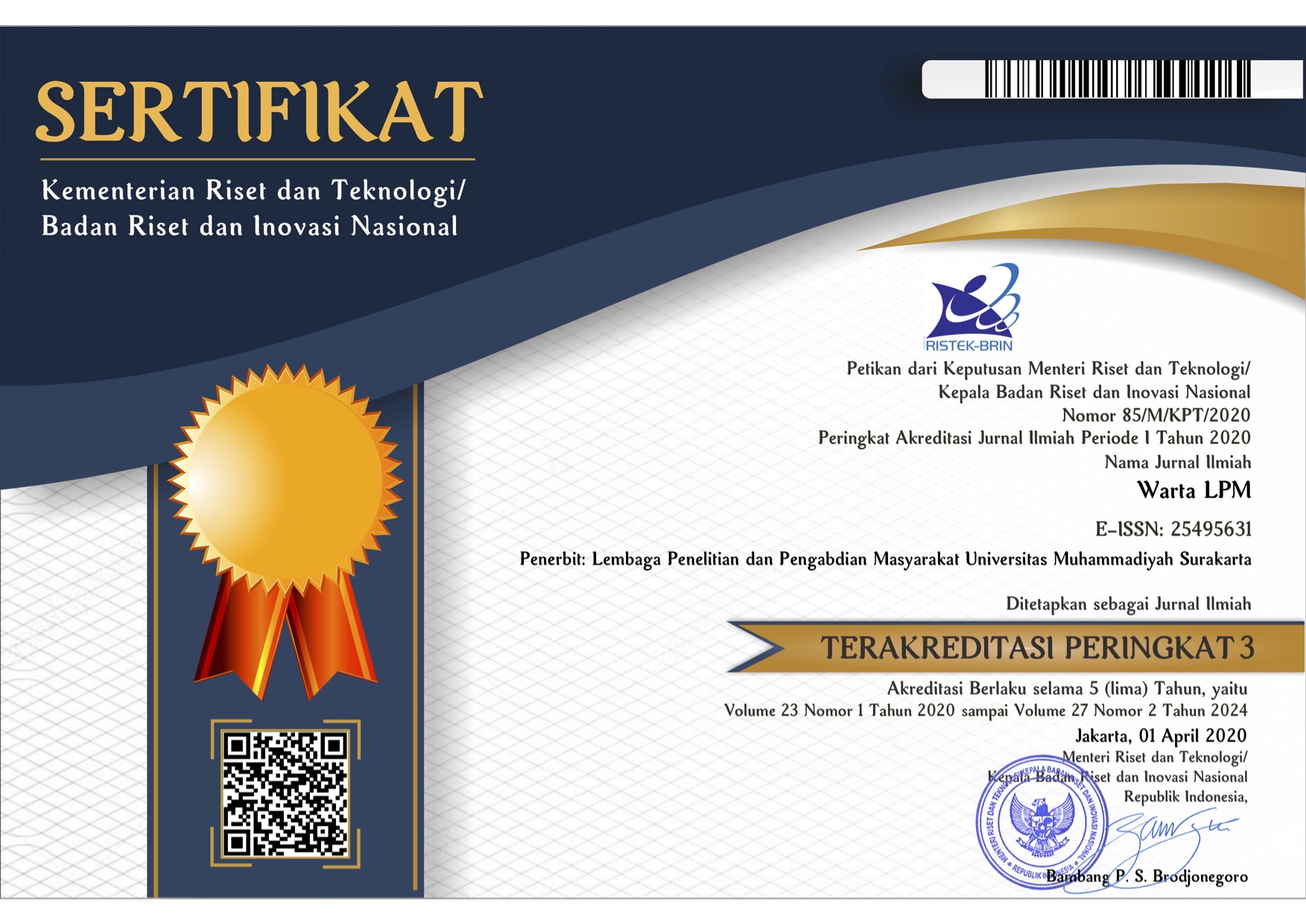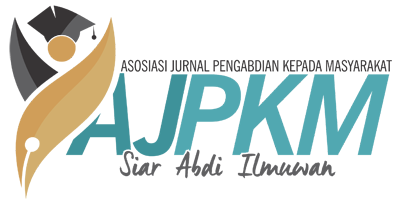OPTIMALISASI PENGGUNAAN LEGO DALAM PEMBELAJARAN MATEMATIKA SMP UNTUK MENDUKUNG IMPLEMENTASI KURIKULUM 2013
Sri Rejeki(1*)(1)
(*) Corresponding Author
Abstract
kill about using LEGO in mathematics teaching and learning to mathematics teachers. This conducted into three stages of training and two stages of real teaching. The stages of the training were introducing the use of LEGO in mathematics teaching and learning, designing sets of teaching and learning activities using LEGO as the media, and peer teaching. The real teaching conducted in two stages of three meetings for each stages. Twelve mathematics teachers from five schools of Muhammadiyah in Surakarta were participated in this training. The teachers have technically trained with new experiences using LEGO as media in mathematics learning and have developed five sets of lesson plans for the topics of fractions, sets, proportion, linear equation with one variable, and statistics. The real teaching for the topic of fractions was conducted in two of those five schools. The results indicate the learning activities designed support students understanding and attitude in mathematics.
Keywords
Full Text:
PDF (Bahasa Indonesia)References
(NCTM), N. C. of T. of M. (2000). Principles and Standards for School Mathematics. Reston, VA: National Council of Teachers of Mathematics.
E, P. C. V. A. N. D. E. R. S. (1989). The Effect of a Brief Teacher Training on Studen T Achievement. Teaching & Teacher, 5(1036), 303–314.
Freudenthal. (1991). Revisiting Mathematics Education. Dordrecht: Kluwer Academic Publisher.
Hiebert, J., & Grouws, D. a. (2004). The effects of classroom mathematics teaching on students’ learning. Second Handbook of Research on Mathematics Teaching and Learning.
Hill, H. C., Rowan, B., & Ball, D. L. (2013). Effects of Teachers’ Mathematical Knowledge for Teaching on Student Achievement. American Educational Research Journal, 1(September 2013), 1–36. http://doi.org/10.1017/CBO9781107415324.004
Kemdikbud. (2013). Materi Pelatihan Guru Implementasi Kurikulum 2013 SMP/MTs Matematika. Jakarta.
Najdi, S., & El Sheikh, R. (2012). Educational games: do they make a difference. Social and Behavioral Science, 47, 48–51.
Nath, S., & Szucs, D. (2014). Constuction play cognitive skills associated with the development of mathematical abilities in 7-year-old children. Learning and Instruction, 32, 73–80.
OECD. (2014). PISA 2012 Results in Focus. Programme for International Student Assessment, 1–44. http://doi.org/10.1787/9789264208070-en
Provasnik, Stephen ; Kastberg, David ; Ferraro, David ; Lemanski, Nita ; Roey, Stephen ; Jenkins, F. (2013). Highlights From TIMSS 2011. National Center for Education Statistics. Retrieved from https://libproxy.library.unt.edu:9443/login?url=http://search.ebscohost.com/login.aspx?direct=true&db=eric&AN=ED537756&scope=site
White, K. M. (2012). The Effect of An Instructional Model Utilizing Hands-On Learning and Manipulatives on Math Achievement of Middle School Students in Georgia. Liberty Univesity.
Article Metrics
Abstract view(s): 1158 time(s)PDF (Bahasa Indonesia): 1235 time(s)
Refbacks
- There are currently no refbacks.









